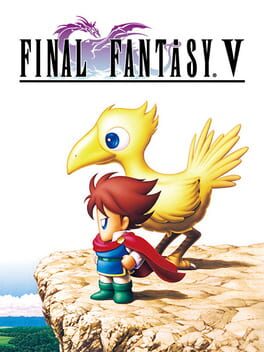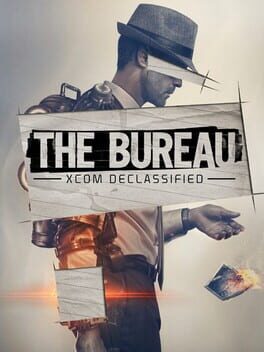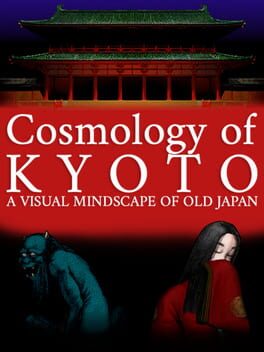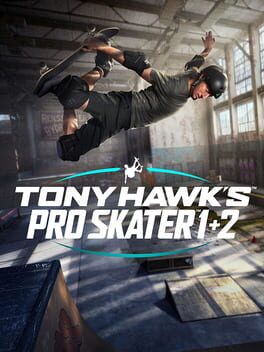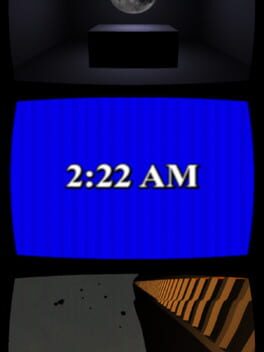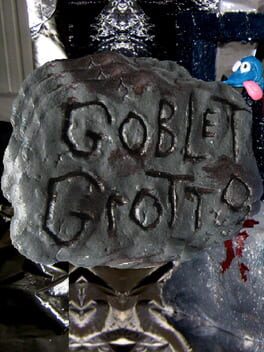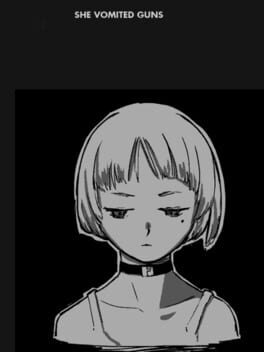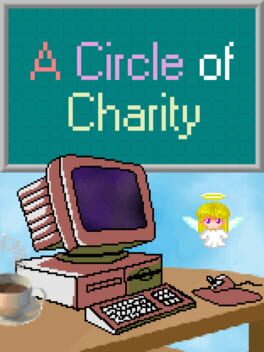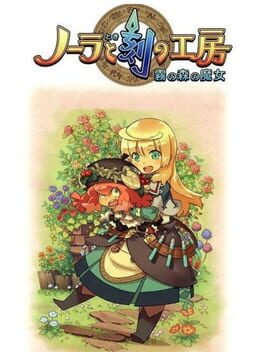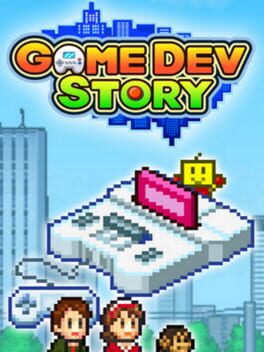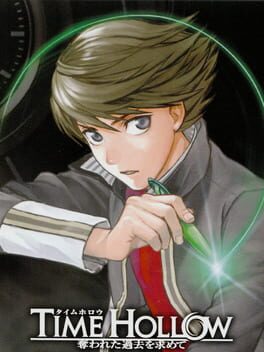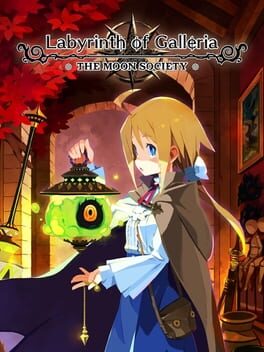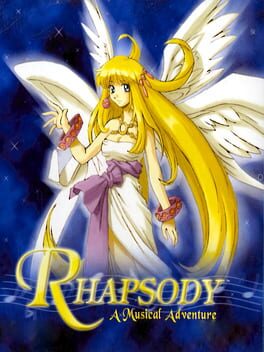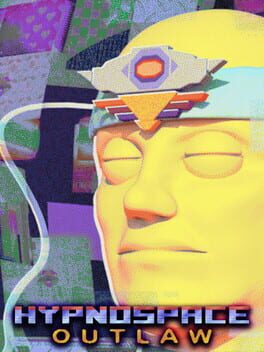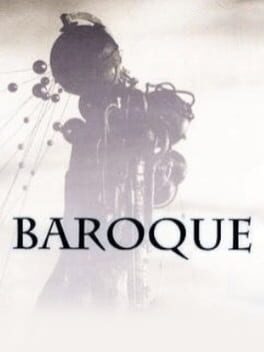DolorousWthVines
BACKER
1992
I don't know if I have anything of substance to say about this. Like, it's fun. Everybody has already talked about how the job system is incredibly solid. And yeah. It is.
As with most job systems, it requires prior knowledge and/or to look up stuff to be fully engaged with, and that's like, ok; not my favourite thing; bites a bit into the sense of discovery; but like, it's still a fun time. I made a freelancer with !Sshot and 2-hands and it would just eat through monsters like a human lawnmower and it was really funny. So there's that.
It's fun to look at the early Final Fantasy games cause at its inception the series was still bearing many elements of freeform PC RPGs, but with each entry more and more of that structure was shed, with IV finally closing closely into that very "linear-narrative" structure the series (and in part, the genre) will settle into. Don't ask me how Dragon Quest fits into this. I assume it followed a similar journey, but I honestly have no idea cause I've only ever played VIII.
Anyhow V feels like the place where they really nailed the pacing for that kind of game. You kinda dart around the map from novel 30-minute dungeon to novel 30-minute dungeon, and it's all very pleasant and varied and snappy. It works very well, especially in combination with the lighthearted, almost Saturday-morning-cartoon-y, narrative it follows.
To an extent, I felt like maybe it lacked a bit of a sense of place. The various locations feel more like setpieces, than parts of a coherent world, which is fine, but makes the world map feel a bit vestigial (honestly, it will continue to feel vestigial until its ultimate removal in FFX)
As said, I don't really have many thoughts. Like, I had fun with this. I enjoyed it. It's a silly fun game.
EDIT: Oh fuck! I almost forgot to talk about the final dungeon. It's kind of a glitch "stuck in time" asset collage kind of thing, and it's SO cool. Like honestly years ahead of its times aesthetically. It's not really used for any interesting narrative purpose (I mean, the big bad of the game is basically a giant muppet, there's not much depth there), but like, regardless of that, I am impressive but how cool and purposefully weird it was. Great stuff.
As with most job systems, it requires prior knowledge and/or to look up stuff to be fully engaged with, and that's like, ok; not my favourite thing; bites a bit into the sense of discovery; but like, it's still a fun time. I made a freelancer with !Sshot and 2-hands and it would just eat through monsters like a human lawnmower and it was really funny. So there's that.
It's fun to look at the early Final Fantasy games cause at its inception the series was still bearing many elements of freeform PC RPGs, but with each entry more and more of that structure was shed, with IV finally closing closely into that very "linear-narrative" structure the series (and in part, the genre) will settle into. Don't ask me how Dragon Quest fits into this. I assume it followed a similar journey, but I honestly have no idea cause I've only ever played VIII.
Anyhow V feels like the place where they really nailed the pacing for that kind of game. You kinda dart around the map from novel 30-minute dungeon to novel 30-minute dungeon, and it's all very pleasant and varied and snappy. It works very well, especially in combination with the lighthearted, almost Saturday-morning-cartoon-y, narrative it follows.
To an extent, I felt like maybe it lacked a bit of a sense of place. The various locations feel more like setpieces, than parts of a coherent world, which is fine, but makes the world map feel a bit vestigial (honestly, it will continue to feel vestigial until its ultimate removal in FFX)
As said, I don't really have many thoughts. Like, I had fun with this. I enjoyed it. It's a silly fun game.
EDIT: Oh fuck! I almost forgot to talk about the final dungeon. It's kind of a glitch "stuck in time" asset collage kind of thing, and it's SO cool. Like honestly years ahead of its times aesthetically. It's not really used for any interesting narrative purpose (I mean, the big bad of the game is basically a giant muppet, there's not much depth there), but like, regardless of that, I am impressive but how cool and purposefully weird it was. Great stuff.
The history behind The Bureau is fascinating, with the project being developed and iterated on long before the revival of XCOM through the beloved Enemy Unknown. According to Wikipedia at some point, Ken Levine's Irrational was working on the fps iteration of the franchise, which is just really funny. If you thought the nuance-less "we must defend ourselves against these ontologically evil outsiders" motif of XCOM can sometimes get a bit uncomfortably fash already, imagine what it would have been in the hands of the dude who made Bioshock Infinite.
Anyhow, at some point, The Bureau was supposed to be more of a horror/investigation game which aimed to really leverage its 50s settings, and honestly, that version of the game looked pretty interesting. Like, the setting and small quiet moments are honestly the best part of this version of The Bureau, and a game that leaned harder on those elements (rather than start setting all the action in generic spaceships past the halfway mark), would have been something way more on my wavelength.
What we got instead, is a third-person shooter/tactics hybrid, that, while a really coherent design on paper, is just... not that much fun when actually played.
Like, on paper adding a bunch of tactics elements to the classic cover-based TPS formula is a pretty interesting interpretation of the XCOM gameplay, and surprisingly coherent with the direction Enemy Unknown went just a year prior to The Bureau release. But when you play the game... it doesn't quite work. The game needs to be slower-paced than a classic TPS, to allow for tactics to happen, which makes the shooting less exciting, but it's still fast enough that most AoE abilities are kinda difficult to aim accurately; Enemies get very bullet-sponge-y to balance for the fact that your squad-mates are actual game pieces, and not just set dressing (like in a lot of TPSs); The game really wants you to flank your enemies to gain an advantage, but this being real-time means that you're being shot at while trying to flank, which makes it way harder to do; and like, there are so many more small practical annoyances to this formula, that make what is otherwise a competent 2010s shooter kind of a pain to play. Which is a shame to be honest, because, the idea itself of a shooty tactics game is kinda neat.
I dunno, I bear this game no ill will, it clearly went through some troubled development times (you can really see the seams of salvaging in places), and while in the end it's not a particularly fun experience, between some quick glances of a neat retro horror setting, and an interesting, yet not really functional, combat-system, it at least Tried to do something cool. I always appreciate a game that Tries.
It also has a weird twist at the end that I'm not gonna spoil. Between that and the ridiculously grizzled main character, the narrative is just SO late 00s/early 10s shooter tropes. Hate that shit, but tbh kinda also love that shit.
Anyhow, at some point, The Bureau was supposed to be more of a horror/investigation game which aimed to really leverage its 50s settings, and honestly, that version of the game looked pretty interesting. Like, the setting and small quiet moments are honestly the best part of this version of The Bureau, and a game that leaned harder on those elements (rather than start setting all the action in generic spaceships past the halfway mark), would have been something way more on my wavelength.
What we got instead, is a third-person shooter/tactics hybrid, that, while a really coherent design on paper, is just... not that much fun when actually played.
Like, on paper adding a bunch of tactics elements to the classic cover-based TPS formula is a pretty interesting interpretation of the XCOM gameplay, and surprisingly coherent with the direction Enemy Unknown went just a year prior to The Bureau release. But when you play the game... it doesn't quite work. The game needs to be slower-paced than a classic TPS, to allow for tactics to happen, which makes the shooting less exciting, but it's still fast enough that most AoE abilities are kinda difficult to aim accurately; Enemies get very bullet-sponge-y to balance for the fact that your squad-mates are actual game pieces, and not just set dressing (like in a lot of TPSs); The game really wants you to flank your enemies to gain an advantage, but this being real-time means that you're being shot at while trying to flank, which makes it way harder to do; and like, there are so many more small practical annoyances to this formula, that make what is otherwise a competent 2010s shooter kind of a pain to play. Which is a shame to be honest, because, the idea itself of a shooty tactics game is kinda neat.
I dunno, I bear this game no ill will, it clearly went through some troubled development times (you can really see the seams of salvaging in places), and while in the end it's not a particularly fun experience, between some quick glances of a neat retro horror setting, and an interesting, yet not really functional, combat-system, it at least Tried to do something cool. I always appreciate a game that Tries.
It also has a weird twist at the end that I'm not gonna spoil. Between that and the ridiculously grizzled main character, the narrative is just SO late 00s/early 10s shooter tropes. Hate that shit, but tbh kinda also love that shit.
1993
Cosmology of Kyoto is an odd artefact from an era in which the popularization of personal computers, and computer games, led to a wave of experimentation with the digital medium, which gave us a lot of very interesting pieces that don't always fit with what we currently think of when we think "computer game".
If we look at it with a contemporary lens Cosmology of Kyoto is a horror game, a point-and-click adventure, a walking simulator and an edutainment game. But I don't think that kind of labelling would do it any justice. What I would call it instead is an exercise in form. The odd, fragmented structure; the freeform almost museum-like quality of the play; the functional and mood-driving use of death, are all incredibly interesting takes on how a digital space could be structured. To an extent they feel like evolutionary dead ends, but that's not for any inherent failing of their own, but because adventure games moved from there in totally different (and more lucrative) directions.
But yeah, no, you should probably play this if you like video games.
And, like, content-wise it's super spooky while at the same time being quite interesting and informative. Perfect Halloween game tbh.
But also, I dunno, I look at Cosmology of Kyoto and its very purposeful design decisions, and I think about what could have video games been if that wave of computer games had been allowed to flourish. It feels like we lost quite a lot when the medium became this "ease of use modern fun design" monolith, and left this kind of structural experimentations, not necessarily rooted in videogame-isms, behind.
If we look at it with a contemporary lens Cosmology of Kyoto is a horror game, a point-and-click adventure, a walking simulator and an edutainment game. But I don't think that kind of labelling would do it any justice. What I would call it instead is an exercise in form. The odd, fragmented structure; the freeform almost museum-like quality of the play; the functional and mood-driving use of death, are all incredibly interesting takes on how a digital space could be structured. To an extent they feel like evolutionary dead ends, but that's not for any inherent failing of their own, but because adventure games moved from there in totally different (and more lucrative) directions.
But yeah, no, you should probably play this if you like video games.
And, like, content-wise it's super spooky while at the same time being quite interesting and informative. Perfect Halloween game tbh.
But also, I dunno, I look at Cosmology of Kyoto and its very purposeful design decisions, and I think about what could have video games been if that wave of computer games had been allowed to flourish. It feels like we lost quite a lot when the medium became this "ease of use modern fun design" monolith, and left this kind of structural experimentations, not necessarily rooted in videogame-isms, behind.
It's tony hawk's pro skater, again, but they put a Machine Gun Kelly song on this one. So it's clearly the superior version.
The Suicide Machines being on the soundtrack has also always been a cool choice, although I wish they went with one of their most political song rather than New Girl.
Anyhow, I dunno, I don't have any complex thoughts about this. It's fun. It does exactly what it needs to do. I generally abhor video game remakes, but like, this is kinda neat. Feels like an addendum rather than a rewriting.
The Suicide Machines being on the soundtrack has also always been a cool choice, although I wish they went with one of their most political song rather than New Girl.
Anyhow, I dunno, I don't have any complex thoughts about this. It's fun. It does exactly what it needs to do. I generally abhor video game remakes, but like, this is kinda neat. Feels like an addendum rather than a rewriting.
2014
2012
I'm going through all the short itch.io games on my list of games to play and getting them played, because The List needs to be under 500 games or I will die. Anyhow I ended up playing this thing for about a whole hour, despite youtube telling me it takes ten minutes to complete. I didn't even complete it.
This rules. I don't know how seriously I should take it, as the game is steeped in what can come off as absurdist slapstick and humour. But nonetheless, it is inscrutable and surreal and mildly infuriating and sort of creepy in all the ways I love for games to be.
Also in the game you have to eat meat constantly to not get depressed and I find that extremely relatable.
This rules. I don't know how seriously I should take it, as the game is steeped in what can come off as absurdist slapstick and humour. But nonetheless, it is inscrutable and surreal and mildly infuriating and sort of creepy in all the ways I love for games to be.
Also in the game you have to eat meat constantly to not get depressed and I find that extremely relatable.
2023
2023
Fuck you. I hate this. Thank you.
(I dunno, I also have some vague thoughts marinating in my brain about what place this kind of overshare-core stuff has in art, media and our general existence in this broken world, but it's all kinda formless, and this isn't the place for it. But yeah this is like, a 20 minute game, it's very good, and it hurt like hell)
(I dunno, I also have some vague thoughts marinating in my brain about what place this kind of overshare-core stuff has in art, media and our general existence in this broken world, but it's all kinda formless, and this isn't the place for it. But yeah this is like, a 20 minute game, it's very good, and it hurt like hell)
This game is ridiculously adorable, like it's just a whole maelstrom of cute. Atlus should finally give this game an official translation, call it wholesome or something, pretend someone with genders made it, and they'd be running all the way to the bank with the amount of money this whimsy-core nicefest would make with all the depressed burned out idiots like me.
Just look at how cute and pretty the pixel art is! It looks like those pixel art mock up you see constantly on Twitter, but it's like, a real game. And everyone is nice and fun to interact with, except for the villagers who think the protagonist is a witch, but like, that's secret queer theming so that's ok, and you end up befriending them anyway.
At its core, it Is just a very basic Atelier-like, especially similar to the more stripped-down entries in the series, like Atelier Marie. But there's nothing wrong with that. I enjoy Atelier games, and this is a pretty good aesthetic take on the genre. And the time-magic gimmick, while not mechanically revolutionary, does add a bit of personality to the general play.
I dunno, I did two runs of this, and got the bad ending both times. Because I'm really bad at this Atelier stuff. But that was like, 12 solid hours of cutesy fun, so I can't say I have anything against this game. I'll probably give it another go and see if I can at least get the normal ending, but I don't think I'll get there. It's good.
Just look at how cute and pretty the pixel art is! It looks like those pixel art mock up you see constantly on Twitter, but it's like, a real game. And everyone is nice and fun to interact with, except for the villagers who think the protagonist is a witch, but like, that's secret queer theming so that's ok, and you end up befriending them anyway.
At its core, it Is just a very basic Atelier-like, especially similar to the more stripped-down entries in the series, like Atelier Marie. But there's nothing wrong with that. I enjoy Atelier games, and this is a pretty good aesthetic take on the genre. And the time-magic gimmick, while not mechanically revolutionary, does add a bit of personality to the general play.
I dunno, I did two runs of this, and got the bad ending both times. Because I'm really bad at this Atelier stuff. But that was like, 12 solid hours of cutesy fun, so I can't say I have anything against this game. I'll probably give it another go and see if I can at least get the normal ending, but I don't think I'll get there. It's good.
1996
2008
Kinda milquetoast. Not awful by any means, but it definitely lacks the vibes and goofiness of Shadow of Memories, Junko Kawano's previous adventure game.
For what it's worth, I found the core mystery to be very engaging, it's a pretty well-structured time travel murder mystery, and it actually got my one brain cell working to try and figure it out along with the characters. Problem is, that plot doesn't Really kick into gears until about halfway through the game, and when the big mystery is not actively A Thing, you're just left with some of the most nothing characters ever. All of the non-expository dialogue is just so incredibly bland that it makes the introductory chapters kind of a pain to get through.
That said, I like it when Visual Novels/ADV games, filter their pace through pseudo-systemic mechanics. Like, yeah, the whole time-travel and hole-drawing don't ever lead to interesting choices, as a """real""" system would, but they add a lot of aesthetic depth to the play, and actually help a lot with the pacing, by giving clear objectives and lines of thought for the player to pursue. So like, that bit is neat. Not Ace Attorney levels of neat, but still neat.
Anyhow this is alright. Doesn't quite get there in being anything memorable, but I didn't hate playing it. Both the worst and best thing I can say about it, is that its blandness sort of made me appreciate Shadow of Memories' boldness and character a lot more.
The cat is cute tho.
For what it's worth, I found the core mystery to be very engaging, it's a pretty well-structured time travel murder mystery, and it actually got my one brain cell working to try and figure it out along with the characters. Problem is, that plot doesn't Really kick into gears until about halfway through the game, and when the big mystery is not actively A Thing, you're just left with some of the most nothing characters ever. All of the non-expository dialogue is just so incredibly bland that it makes the introductory chapters kind of a pain to get through.
That said, I like it when Visual Novels/ADV games, filter their pace through pseudo-systemic mechanics. Like, yeah, the whole time-travel and hole-drawing don't ever lead to interesting choices, as a """real""" system would, but they add a lot of aesthetic depth to the play, and actually help a lot with the pacing, by giving clear objectives and lines of thought for the player to pursue. So like, that bit is neat. Not Ace Attorney levels of neat, but still neat.
Anyhow this is alright. Doesn't quite get there in being anything memorable, but I didn't hate playing it. Both the worst and best thing I can say about it, is that its blandness sort of made me appreciate Shadow of Memories' boldness and character a lot more.
The cat is cute tho.
I have Thoughts on this game:
• The first of the three sections of the game (Alluna) is genuinely one of the best things I've played in a long time. A really touching story of bonding through trauma and societal oppression.
It's generally less dark than the other two sections of the game, but only because the darkness of its themes bubbles underneath the surface ominously, rather than being directly used for shock (something that can't always be said about the second section of the game). While presenting extremely likeable characters, this whole game segment is permeated by an almost constant fear and sense of dread, that is poignantly coupled with the slow reveal of the traumatic experiences its protagonists have gone through.
It'd almost be a hopeful little self-contained tale about women finding community even through their lingering trauma and a hostile world, if it wasn't for its incredibly dark ending that sets ups the rest of the game.
• Alluna is also perfectly paced. I was sceptical of the "play 30 minutes of a dungeon crawler to get 5 minutes of visual novel" structure, but, especially this section, and to a point the whole game, uses the odd dungeon crawler/visual novel dichotomy to dictate pace in really effective and poignant ways.
• The second section (Alstella) is... messier. This game touches on some extremely dark themes, including sexual assault, and while the first section does that subtly and in a way that supports the game's themes; the Alstella section does seem to fall in gratuitous territory in a couple of instances. While I still want to believe that most of the storytelling in Labyrinth of Galleria is done in good faith, a couple of moments are definitely mishandled/unnecessary.
• The grand overarching plot does eventually kinda fall into anime/visual novel tropes. Aside from the shift to high stakes Sci-Fi/Fantasy (which I don't hate but also don't find as effective as the timeless abstract fantasy tone of the Alluna section), there's just so much... minute exposition of things that don't really matter to the emotional core of the story? Storytelling with this amount of moving parts can work, but in this case it just seems to run against the main strength of the writing, which is characters. This also ends up tanking the pacing during the second third of the game, as there end up being very long stretches of game where nothing interesting/engaging happens.
• I believe an amount of odd/spurious details are there to connect this game to other games in the series and... I'm just so tired of lore? Can we just stop?
• The problem with this kind of grand plot is also that, out of necessity, it tends to always end in the same kind of story beats. The likeable and well-written characters give Galleria a strong emotional resonance throughout its whole length, but still, a lot of the Alstella and Grand Cathedral endings feel a bit... uninspired. I'm just not sure how many jrpg speeches about "a flawed but alive world is better than a perfect static one" I can still take. Especially because the rest of the game, is like, very good, and not about that stuff at all. But once you add world-creation powers in the mix you can't really go anywhere else.
• It can't be overstated that the character writing is honestly incredibly good. A lot of the trauma explored in it hits a bit too close to home tbh. But, yeah, it's really good stuff.
• One exception to this is the big villain of the game. A lot of her motivation just... didn't make a lot of sense nor had any real emotional payoff. I get what they were trying to do with her (and with one of the final reveals, which gives a justification to her often bizarrely misaligned plans), but I feel like maybe this game didn't really need a grandiose villain at all. As mentioned, all other characters are complex and compelling and very empathetically written, so I don't think that the forces causing conflict in the world necessarily needed to have a "face" for the core conflicts presented in the story to work.
• Most of the dungeon crawling is excellent. The combat is deliberately designed to have an auto-battle focus, with most abilities being passive or automatic triggers. This is not something I've seen before, and it works really well for a game that's 100+ hours long but doesn't want to be a purely mechanically focused experience.
• The focus on navigation is something less uncommon, but still very well realized. The wall-break mechanic being one of the first things the player unlocks is specifically a really clever move. A huge part of the game is a pseudo-tutorial, which slowly introduces all of the game's mechanics, but being able to explore non-linearly and reveal secrets by breaking walls, makes the exploration feel organic and way less guided than it would otherwise be.
• The art of some of the later unlocked Facets is... problematic? not great? I dunno, it's not really a main aspect of the game, and it's easily ignorable, so I don't want to spend too many words on it, but still, shit like that still kinda undermines the drama of the game for me.
• I love the soundtrack. It follows the usual Disgaea/Tenpai Sato vibes, but with a more dramatic twist. Specifically, the boss theme and the apartment theme are absolute bops.
• Oh! The framing device, wherein the player plays as a phantom who is summoned by the various witches in the game, and not as the witches themselves, is quite clever. It creates a sort of effective detachment from the story which plays well with the visual novel-dungeon crawler dichotomy. I'm also glad that it's mostly an aesthetic and it never really becomes a heavy plot element. It's just a neat aesthetic choice and I can get on board with that.
Ultimately Labyrinth of Galleria is honestly great. I spent a lot of time focusing on the negatives, but overall this is a very powerful story told in an extremely creative and well-crafted way. It had me in genuine tears in multiple instances, and as much as I'm a bit of a crybaby, that's still an impressive task for what could have otherwise been dismissed as "just another mechanically dense dungeon crawler". But at the same time, it Is difficult to ignore this game's many contradictions, which often end up undermining its drama. Playing it definitely requires a high tolerance for this kind of uneven media, and of course, the willingness to play a 100+ hours-long dungeon crawler, but I can say that if you can get through that, it is a very worthwhile experience.
• The first of the three sections of the game (Alluna) is genuinely one of the best things I've played in a long time. A really touching story of bonding through trauma and societal oppression.
It's generally less dark than the other two sections of the game, but only because the darkness of its themes bubbles underneath the surface ominously, rather than being directly used for shock (something that can't always be said about the second section of the game). While presenting extremely likeable characters, this whole game segment is permeated by an almost constant fear and sense of dread, that is poignantly coupled with the slow reveal of the traumatic experiences its protagonists have gone through.
It'd almost be a hopeful little self-contained tale about women finding community even through their lingering trauma and a hostile world, if it wasn't for its incredibly dark ending that sets ups the rest of the game.
• Alluna is also perfectly paced. I was sceptical of the "play 30 minutes of a dungeon crawler to get 5 minutes of visual novel" structure, but, especially this section, and to a point the whole game, uses the odd dungeon crawler/visual novel dichotomy to dictate pace in really effective and poignant ways.
• The second section (Alstella) is... messier. This game touches on some extremely dark themes, including sexual assault, and while the first section does that subtly and in a way that supports the game's themes; the Alstella section does seem to fall in gratuitous territory in a couple of instances. While I still want to believe that most of the storytelling in Labyrinth of Galleria is done in good faith, a couple of moments are definitely mishandled/unnecessary.
• The grand overarching plot does eventually kinda fall into anime/visual novel tropes. Aside from the shift to high stakes Sci-Fi/Fantasy (which I don't hate but also don't find as effective as the timeless abstract fantasy tone of the Alluna section), there's just so much... minute exposition of things that don't really matter to the emotional core of the story? Storytelling with this amount of moving parts can work, but in this case it just seems to run against the main strength of the writing, which is characters. This also ends up tanking the pacing during the second third of the game, as there end up being very long stretches of game where nothing interesting/engaging happens.
• I believe an amount of odd/spurious details are there to connect this game to other games in the series and... I'm just so tired of lore? Can we just stop?
• The problem with this kind of grand plot is also that, out of necessity, it tends to always end in the same kind of story beats. The likeable and well-written characters give Galleria a strong emotional resonance throughout its whole length, but still, a lot of the Alstella and Grand Cathedral endings feel a bit... uninspired. I'm just not sure how many jrpg speeches about "a flawed but alive world is better than a perfect static one" I can still take. Especially because the rest of the game, is like, very good, and not about that stuff at all. But once you add world-creation powers in the mix you can't really go anywhere else.
• It can't be overstated that the character writing is honestly incredibly good. A lot of the trauma explored in it hits a bit too close to home tbh. But, yeah, it's really good stuff.
• One exception to this is the big villain of the game. A lot of her motivation just... didn't make a lot of sense nor had any real emotional payoff. I get what they were trying to do with her (and with one of the final reveals, which gives a justification to her often bizarrely misaligned plans), but I feel like maybe this game didn't really need a grandiose villain at all. As mentioned, all other characters are complex and compelling and very empathetically written, so I don't think that the forces causing conflict in the world necessarily needed to have a "face" for the core conflicts presented in the story to work.
• Most of the dungeon crawling is excellent. The combat is deliberately designed to have an auto-battle focus, with most abilities being passive or automatic triggers. This is not something I've seen before, and it works really well for a game that's 100+ hours long but doesn't want to be a purely mechanically focused experience.
• The focus on navigation is something less uncommon, but still very well realized. The wall-break mechanic being one of the first things the player unlocks is specifically a really clever move. A huge part of the game is a pseudo-tutorial, which slowly introduces all of the game's mechanics, but being able to explore non-linearly and reveal secrets by breaking walls, makes the exploration feel organic and way less guided than it would otherwise be.
• The art of some of the later unlocked Facets is... problematic? not great? I dunno, it's not really a main aspect of the game, and it's easily ignorable, so I don't want to spend too many words on it, but still, shit like that still kinda undermines the drama of the game for me.
• I love the soundtrack. It follows the usual Disgaea/Tenpai Sato vibes, but with a more dramatic twist. Specifically, the boss theme and the apartment theme are absolute bops.
• Oh! The framing device, wherein the player plays as a phantom who is summoned by the various witches in the game, and not as the witches themselves, is quite clever. It creates a sort of effective detachment from the story which plays well with the visual novel-dungeon crawler dichotomy. I'm also glad that it's mostly an aesthetic and it never really becomes a heavy plot element. It's just a neat aesthetic choice and I can get on board with that.
Ultimately Labyrinth of Galleria is honestly great. I spent a lot of time focusing on the negatives, but overall this is a very powerful story told in an extremely creative and well-crafted way. It had me in genuine tears in multiple instances, and as much as I'm a bit of a crybaby, that's still an impressive task for what could have otherwise been dismissed as "just another mechanically dense dungeon crawler". But at the same time, it Is difficult to ignore this game's many contradictions, which often end up undermining its drama. Playing it definitely requires a high tolerance for this kind of uneven media, and of course, the willingness to play a 100+ hours-long dungeon crawler, but I can say that if you can get through that, it is a very worthwhile experience.
Very cute fantasy shoujo-inspired rpg. It doesn't really break away from the genre or subvert anything, but it's pretty funny nonetheless and tbh, sometimes you just really need to run around a fantasy world for 10-ish hours (love the breezy fast pacing btw) collecting magical stones in order to kiss a prince.
The dungeons are extremely barebone, and get way better when you can just turbo through them. The combat difficulty is also tuned Way Way down. This is not necessarily bad, but I was at least expecting a bit more challenge from the final boss (which I two-shotted).
But yeah, no, this is very enjoyable. I love a jrpg that can deliver a compelling experience in such genre-uncharacteristic game length.
The dungeons are extremely barebone, and get way better when you can just turbo through them. The combat difficulty is also tuned Way Way down. This is not necessarily bad, but I was at least expecting a bit more challenge from the final boss (which I two-shotted).
But yeah, no, this is very enjoyable. I love a jrpg that can deliver a compelling experience in such genre-uncharacteristic game length.
2019
1. This era of the internet missed me by about 5-8 years, yet it still evokes an uncanny sense of... not nostalgia... just... memory? My era of the internet, was, to an extent still haunted by the echoes of 90s internet. Anything that in the 00s delved into the recent past, would inevitably bring up the aesthetics and mechanics of that early popularization of the medium. So I guess it was a memory then, and now it's a memory of a memory.
I dunno, I coincidentally played this at the same time as I started listening to That One Homestuck podcast, which is another dive into a similar yet different internet that I've ever only been tangentially and indirectly aware of, and I just have a lot of unstructured thoughts about the ghosts of past internets that hang over our current experience of the web. Mostly the feeling that, for all their faults, these past internets seemed, at least to an extent, to promote and enable community and human-ness, rather than merely exploit it, as the current late-social-media era internet does.
I miss blogs and I miss forums. They were 75% terrible, but honestly, I'll take toxic forum culture every day over the relentless and pervasive clout chasing of social media. Past internet was filled with assholes, cause people are assholes sometimes, and it sucked, but at least it was honest. There's nothing honest about any of the culture of late-era influencer-driven social media. It's an uncanny perversion of social mechanics, that just spins its wheels forever, tiring us out, and draining any meaning from the words we write. It commodifies aesthetics and rhetorics rather than exalting them. It slowly kills our sense of belonging as it tries to convince us that just one more like will make us happy.
There's this one page, that appears around December in the game, featuring this song about how "Zones" (the in-game communities) are "places for people to feel the same" and "places for people to feel different". I like that song. I wish I could still think of the internet in that way.
2. So, like, the idea of, basically a wiki-hole game is great. And like, props to everyone involved in the development cause the logistics of actually making something like this sound like a huge pain.
This is fun. For the most part, I love the mechanics. They're cleverly designed to tap into the innate pleasure of "internet research", making the player feel like they're cleverly digging through data and making mental connections, while at the same time guiding them through the content. It's so cool!
I wish this game... dwelled more on itself though. A key part of the experience of the old web, was logging in every day, looking at all your favourite websites to check if there was any new update, or if someone had replied to that one thread you liked on that discussion board. It was truly a "place", in many ways.
Hypnospace Outlaw, while it does feature some mild time-skipping mechanics, never quite manages to fully convey that, almost Animal Crossing-like, feeling of Being in a place that moves at its own, asynchronous, pace. You're always hunting for the next clue, solving the next puzzle, in an environment that's mostly static. It's very much a snapshot.
On the other hand, I understand that to make a game that actually focuses on that feeling of Place, would require a ridiculous amount of content. So like, I get why it doesn't. It's an imperfection in the retelling of those experiences, but a necessary one. In a way, it gives it its own, vaguely ahistorical, but inherently fascinating vibe.
Game's still great. I had fun with it. The first game in a long time where I actually wished it was a bit longer.
I dunno, I coincidentally played this at the same time as I started listening to That One Homestuck podcast, which is another dive into a similar yet different internet that I've ever only been tangentially and indirectly aware of, and I just have a lot of unstructured thoughts about the ghosts of past internets that hang over our current experience of the web. Mostly the feeling that, for all their faults, these past internets seemed, at least to an extent, to promote and enable community and human-ness, rather than merely exploit it, as the current late-social-media era internet does.
I miss blogs and I miss forums. They were 75% terrible, but honestly, I'll take toxic forum culture every day over the relentless and pervasive clout chasing of social media. Past internet was filled with assholes, cause people are assholes sometimes, and it sucked, but at least it was honest. There's nothing honest about any of the culture of late-era influencer-driven social media. It's an uncanny perversion of social mechanics, that just spins its wheels forever, tiring us out, and draining any meaning from the words we write. It commodifies aesthetics and rhetorics rather than exalting them. It slowly kills our sense of belonging as it tries to convince us that just one more like will make us happy.
There's this one page, that appears around December in the game, featuring this song about how "Zones" (the in-game communities) are "places for people to feel the same" and "places for people to feel different". I like that song. I wish I could still think of the internet in that way.
2. So, like, the idea of, basically a wiki-hole game is great. And like, props to everyone involved in the development cause the logistics of actually making something like this sound like a huge pain.
This is fun. For the most part, I love the mechanics. They're cleverly designed to tap into the innate pleasure of "internet research", making the player feel like they're cleverly digging through data and making mental connections, while at the same time guiding them through the content. It's so cool!
I wish this game... dwelled more on itself though. A key part of the experience of the old web, was logging in every day, looking at all your favourite websites to check if there was any new update, or if someone had replied to that one thread you liked on that discussion board. It was truly a "place", in many ways.
Hypnospace Outlaw, while it does feature some mild time-skipping mechanics, never quite manages to fully convey that, almost Animal Crossing-like, feeling of Being in a place that moves at its own, asynchronous, pace. You're always hunting for the next clue, solving the next puzzle, in an environment that's mostly static. It's very much a snapshot.
On the other hand, I understand that to make a game that actually focuses on that feeling of Place, would require a ridiculous amount of content. So like, I get why it doesn't. It's an imperfection in the retelling of those experiences, but a necessary one. In a way, it gives it its own, vaguely ahistorical, but inherently fascinating vibe.
Game's still great. I had fun with it. The first game in a long time where I actually wished it was a bit longer.
1998
I feel like going on at length about this game would make it a disservice. Smarter people than I have talked at lenght about the beauty of its eerie aesthetics, its esoteric points of inspiration, and how its story resonates big time with queer and disabled themes.
Its almost a pioneer in rogue-lite mechanics too, and unlike a lot of its peer uses those mechanic to a point, and not just as a skinner box.
I had played, but not completed, the Wii remake before. But this blows it out of the water completely in terms of vibes and aesthetics.
I love this. This is what video games should be. Maybe a bit less hard tho (ngl, I kinda savescummed a bunch for my final run)
Its almost a pioneer in rogue-lite mechanics too, and unlike a lot of its peer uses those mechanic to a point, and not just as a skinner box.
I had played, but not completed, the Wii remake before. But this blows it out of the water completely in terms of vibes and aesthetics.
I love this. This is what video games should be. Maybe a bit less hard tho (ngl, I kinda savescummed a bunch for my final run)
